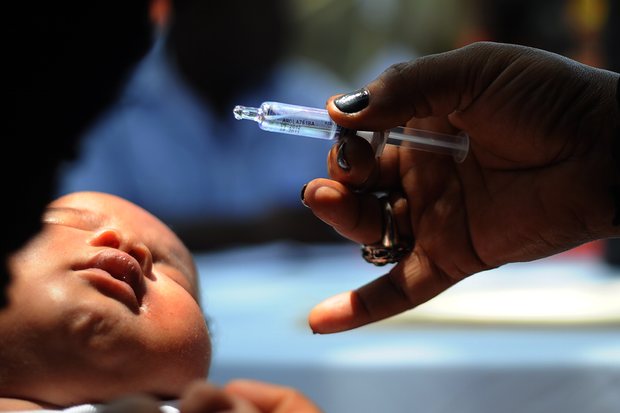Vaccine that does not need refrigeration could save 500,000 lives each year from fatal diarrhoea
by noreply@blogger.com (brian wang) from NextBigFuture.com on (#2GWA1)
Positive outcome of trials in Niger fuels hope that vaccine can protect children in sub-Saharan Africa and beyond from infection that causes often fatal diarrhoea.
A vaccine capable of enduring scorching temperatures for months at a time could strike a decisive blow in the fight against rotavirus, preventing nearly half a million children around the world from dying of diarrhoea each year.
Mi(C)decins Sans Frontiires (MSF) has hailed successful trials of the BRV-PV vaccine in Niger as a "game changer" in tackling rotavirus infection, which is the leading cause of severe diarrhoea globally and claims the lives of an estimated 1,300 children daily, most of them in sub-Saharan Africa.
According to results published in the New England Journal of Medicine, the vaccine has proven as effective as those currently used to treat severe gastroenteritis. Trials in Niger's Maradi region successfully treated 4,000 children under the age of two.
Unlike existing vaccines, the BRV-PV vaccine does not require refrigeration and can remain stable for up to one year at 37C or six months at 40C. It is particularly effective against the strains of rotavirus found in sub-Saharan Africa, as well as affordable: at only $2.50 (2), the vaccine could potentially be rolled out quickly in routine immunisation programmes.
"This is a game-changer," said Dr Micaela Serafini, MSF's medical director. "We believe that the new vaccine can bring protection against rotavirus to the children who need it most."
Diarrhoea is the second largest cause of death in infants and children worldwide, primarily in low-income countries where access to clean water and sanitation is limited. Rotavirus is highly contagious, particularly among babies and young children, and can be spread by contaminated hands, objects such as toys and surfaces, and water and food.
Children in the world's poorest countries account for 82% of rotavirus deaths, but vaccines make a significant difference. In Mexico, diarrhoeal deaths among children under five declined by as much as 50% after rotavirus vaccines were introduced.

A nurse administers a rotavirus vaccine to a baby in Port-au-Prince, the Haitian capital, as part of a 2014 public health initiative. Photograph: Hector Retamal/AFP/Getty Images
Read more










A vaccine capable of enduring scorching temperatures for months at a time could strike a decisive blow in the fight against rotavirus, preventing nearly half a million children around the world from dying of diarrhoea each year.
Mi(C)decins Sans Frontiires (MSF) has hailed successful trials of the BRV-PV vaccine in Niger as a "game changer" in tackling rotavirus infection, which is the leading cause of severe diarrhoea globally and claims the lives of an estimated 1,300 children daily, most of them in sub-Saharan Africa.
According to results published in the New England Journal of Medicine, the vaccine has proven as effective as those currently used to treat severe gastroenteritis. Trials in Niger's Maradi region successfully treated 4,000 children under the age of two.
Unlike existing vaccines, the BRV-PV vaccine does not require refrigeration and can remain stable for up to one year at 37C or six months at 40C. It is particularly effective against the strains of rotavirus found in sub-Saharan Africa, as well as affordable: at only $2.50 (2), the vaccine could potentially be rolled out quickly in routine immunisation programmes.
"This is a game-changer," said Dr Micaela Serafini, MSF's medical director. "We believe that the new vaccine can bring protection against rotavirus to the children who need it most."
Diarrhoea is the second largest cause of death in infants and children worldwide, primarily in low-income countries where access to clean water and sanitation is limited. Rotavirus is highly contagious, particularly among babies and young children, and can be spread by contaminated hands, objects such as toys and surfaces, and water and food.
Children in the world's poorest countries account for 82% of rotavirus deaths, but vaccines make a significant difference. In Mexico, diarrhoeal deaths among children under five declined by as much as 50% after rotavirus vaccines were introduced.

A nurse administers a rotavirus vaccine to a baby in Port-au-Prince, the Haitian capital, as part of a 2014 public health initiative. Photograph: Hector Retamal/AFP/Getty Images
Read more